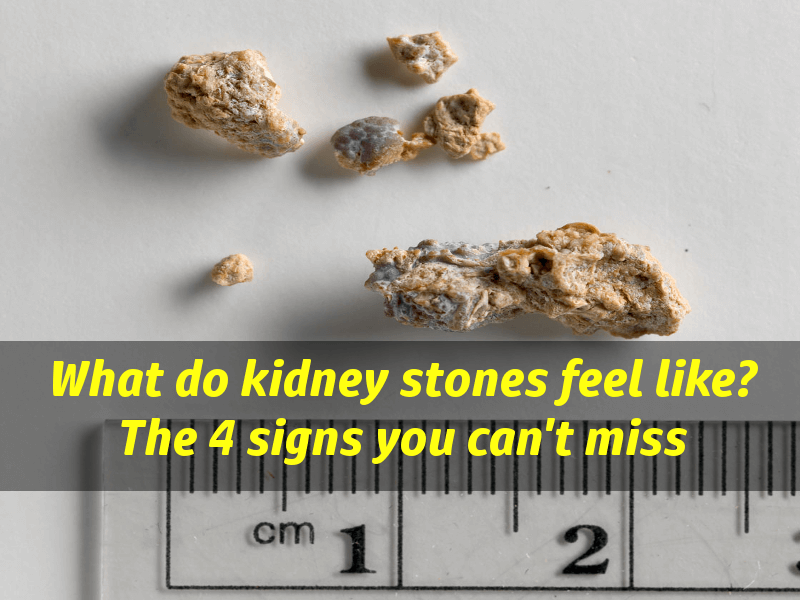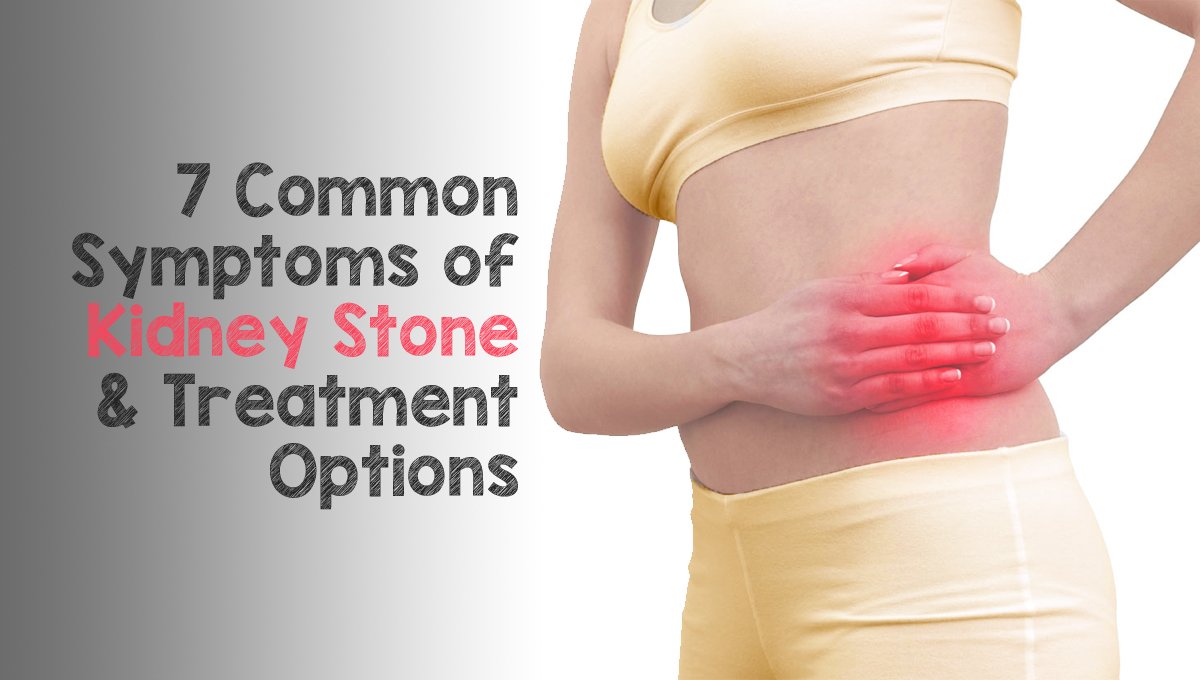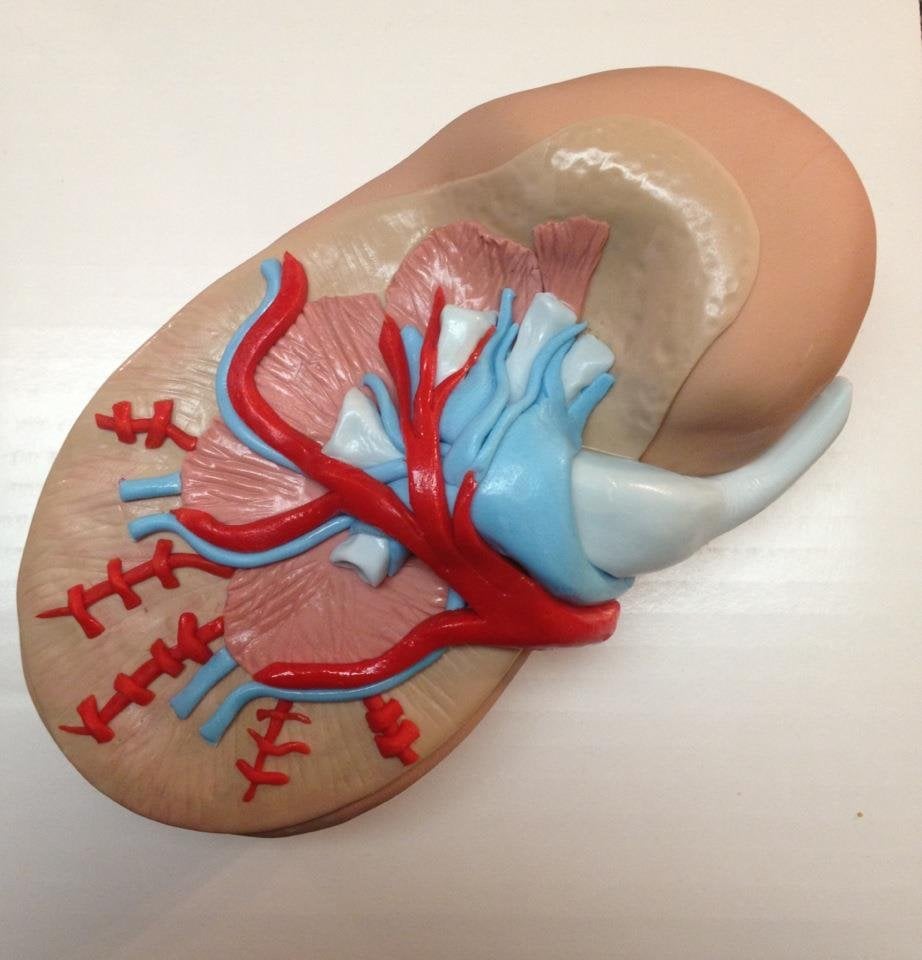Stage 1 Of Passing Kidney Stone
The physiology behind this stage is that the effects of the inflammatory process due to the accumulation of deposits forming a stone, cause a progressive rise in renal blood flow and renal pelvis and ureteral pressure. This is the situational circumstance where the afferent arteriole, called the faucet of the kidney opens maximally to push the stone out of the kidney. Despite that, urine from the kidney can no longer pass to the bladder and as a result builds up and stretches the upper end of the ureter and renal collecting system.;This stretch activates sensory nerve fibres of the neuronal network located in the kidney and ureters.
This stage lasts for approximately 1 to 1 and half hours. The obstruction caused by the stone at the renal tubules classically correlates with the onset of pain or spasm. This is when a person presents at the casualty seeking medical care.
Can Kidney Stone Symptoms Come And Go
The length of time a stone can hang around is the primary reason that a person may feel like kidney stone symptoms come and go.
Once you start feeling the pain of a kidney stone, it can take anywhere between one to four weeks for the stone to actually pass. In the meantime, the pain can seem sporadic. Here’s why:
“During a bout of kidney stones, the initial pain is typically caused by the stone making its way through your very narrow ureter tube. There can also be pain if the stone lodges itself there and blocks urine flow out of the kidney, which results in pressure buildup and painful swelling,” explains Dr. Kannady.
As your body tries to move the kidney stone through your ureter, some of your pain may also be from the waves of contractions used to force the kidney stone out. The pain may also move as the kidney stone moves along your urinary tract.
“Once the stone makes it to your bladder, the pain might subside to some degree and you may notice urinary symptoms in its place. The final push from your bladder to outside of your body can reignite sharp feelings of pain, as the stone is now passing through another narrow tube called your urethra,” says Dr. Kannady.
Treating And Preventing Kidney Stones
Most kidney stones are small enough to be passed in your pee, and it may be possible to treat the symptoms at home with medication.
Larger stones may need to be broken up or removed with surgery.
It’s estimated up to half of all people who have had kidney stones will experience them again within the following 5 years.
To avoid getting kidney stones, make sure you drink plenty of water every day;so you do not become dehydrated.
It’s very important to keep your urine pale in colour to prevent waste products forming into kidney stones.
The kidneys are 2 bean-shaped organs that are roughly 10cm in length.
They’re located towards the back of the abdomen on either side of the spine.
The kidneys remove waste products from the blood. The clean blood is then transferred back into the body and the waste products are passed out of the body when you pee.
Don’t Miss: Is Pineapple Good For Kidney Stones
Kidney Stone Causes And Risk Factors
Both men and women can get kidney stones, but menâs chances of getting them are about double that of womenâs.
Itâs often hard to figure out what caused a kidney stone. But they happen when your urine has high levels of certain minerals. These include:
- Calcium
- Oxalate
- Uric acid
If you donât have enough urine in your body to water down the high concentration of minerals, stones can form. Think about stirring up your favorite drink from a powder mix. If you donât add enough liquid — say, water or juice — the powder will clump up and turn into hard, dry chunks.
Things that can raise your risk for kidney stones include:
- What you eat
- Some medications like triamterene , a diuretic that treats high blood pressure; antiseizure drugs; ; corticosteroids; and protease inhibitors like indinavir sulfate for HIV.
Get Care From An Expert

Kidney stonesare formed when there are more of certain chemicals in the urine than fluid to dilute forming a crystal. That crystal tries tomake its way out of your system through the urinary tract. Sadly, the urethrais smaller than the stone, so its a painful process. Symptoms of kidney stones can include intense pain inthe lower abdomen or back, blood in your urine, or a blockage that stops youfrom being able to urinate. If the pain you are feeling resemblesone of the stories above, get to your healthcare provider fast. They can helpwith some of the pain and put a treatment plan together.
Don’t Miss: Can Kidney Stones Cause Constipation Or Diarrhea
Stage 2 Of Passing Kidney Stones
The sensory nerve fibres transmit afferent signals to corresponding levels of the spinal cord which the body interprets as pain at the site of neuronal activation. Pain usually shifts downwards along with the stone that migrates from the kidney down the ureter and towards the bladder. The stone when lodged at the upper end of the ureter is sensed at a level as high as the upper flank and when down the ureter, almost near the junction at the entry to the bladder is felt as low as the labia or testicle. efferent arteriolar vasoconstriction;which causes a decrease in overall renal blood flow but an increase in ureteral pressure for up to five hours. The faucet is opened and the end clamp is tightened. The pain classically persists at a severe level for several hours.
How To Prevent Kidney Stones
What you can do to prevent future kidney stones depends on the type of stone and your medical history, so youll want to speak with your doctor about your options, Simon says. Prevention strategies might involve drinking plenty of water, making dietary adjustments , or taking various medications to help moderate the levels of certain minerals in your urine, the Mayo Clinic explains.
Additional reporting by Claire Gillespie.
Also Check: What Eases Kidney Stone Pain
Don’t Miss: Is Watermelon Good For Your Kidneys
What Are The Signs Of Kidney Stones In Men
Though both men and women can get kidney stones, they are more prevalent in men, largely due to more metabolic waste, and a more complex urinary tract. Some of the main symptoms of kidney stones in men include pain in the back, abdomen, sides, and groin. An increased urge to urinate, sometimes accompanied by blood, is also a common sign of this condition. Nausea, vomiting, chills, and a fever can also show up, making any man suffering from kidney stones quite uncomfortable. Symptoms of kidney stones in men are usually only noticed when a medium or large stone is being passed, as most small stones can be passed without issue.
One of the most obvious signs of kidney stones in men is pain in the back and on either side, depending on which kidney contains the stone. The pain location usually moves as the stone continues on its way through the urinary tract, as many men begin to feel either cramping or sharp pains in their abdomen. This pain may also radiate to the pelvis or testicular region as the stone moves down to be expelled from the body.
When To Contact A Doctor
A person who is experiencing kidney pain should contact a doctor as soon as possible to find out what is causing it.
People must contact a doctor to diagnose and treat kidney pain. Receiving the correct treatment ensures that the kidneys do not become damaged, which can lead to kidney failure.
Doctors may order tests such as:
- urine tests, which can help them identify any infections
Recommended Reading: Watermelon And Ckd
Can A Large Kidney Stone Cause An Injury
Your risk of injury from a kidney stone can go up based on the size and location of the stone. A larger stone could get stuck in a ureter, causing pressure to build up. This can lead to renal failure and, in the worst-case scenario, you could lose your kidney. The chance of passing a 1 cm stone is less than 10%, and stones larger than 1 cm typically dont pass.
What Questions Should I Ask My Healthcare Provider
- Do I have a kidney stone or is there another reason for my symptoms?
- What type of kidney stone do I have?
- What size is my kidney stone?
- Where is my kidney stone located?
- How many kidney stones do I have?
- Do I need treatment or will I be able to pass the kidney stone?
- Should I be tested for kidney disease?
- What changes should I make to my diet?
- What type of procedure should I have to get rid of the stones?
A note from Cleveland Clinic
Kidney stones can be frustrating at best and agonizingly painful at the worst. To stop your situation from getting worse, you should be evaluated by a healthcare provider as soon as possible. The pain can get severe, and surgery might be necessary. Remember: dont skip your prescriptions, drink lots of water and follow any dietary guidelines. Also, remember that kidney stones are a temporary condition. They wont bother you forever.
Last reviewed by a Cleveland Clinic medical professional on 05/03/2021.
References
Read Also: Is Grape Juice Good For Kidney Stones
What Are The Symptoms After You Pass A Kidney Stone
There might be some residual soreness and pain, but this should be temporary. Lingering pain after passing a kidney stone could be a sign that you have another stone, an obstruction, or infection. It could also be an unrelated issue. Kidney stones can also cause nausea, vomiting, or blood in the urine.
Kidney Stone Symptoms You Should Know

Anyone who has ever had a kidney stone knows how miserable it can make you feel. Kidney stones develop when high levels of salt and other minerals in the urine stick together. Over time, these congealed bits can form stones ranging in size from sand-like grains or small pebbles to chunks of gravel.
Some are soft, some are sort of crushable, some are more crystaline and some are more solid, like a petrified rock, says Margaret Pearle, MD, PhD, professor and vice chair of urology at UT Southwestern Medical Center in Dallas.
Kidney stones can pass in your urine without any need for treatment. But when a stone gets lodged in a bad place, especially in the uretersthe narrow passageways that allow urine to move from the kidneys to the bladderthe pain can get pretty intense. Larger stones may even block the flow of urine. That being said, stones that remain in the kidneys may not cause any pain or symptoms at all. As long as theyre not obstructing urine flow or associated with infection, they can be left alone.
A variety of factors like diet, certain medical conditions , and family history of the issue can increase the risk for developing kidney stones. One of the most important and easily correctable risk factors is dehydration. Boosting your daily water intake can reduce your risk of forming kidney stones in the first place.
Here are the key warning signs of kidney stones, plus what you can do to get rid of these little troublemakers.
Don’t Miss: What Laxative Is Safe For Kidneys
Urge To Urinate Or Frequent Urination
Sometimes people with kidney stones feel like they need to peea lot. This symptom depends on where the stone is located.;Stones that are close to the bladder will have a lot of bladder symptoms: frequency, urgency, needing to get to the bathroom quickly, and going small amounts, Dr. Pearle notes.
The reason? Stones irritate the walls of the bladder and that manifests as the bladder contracting, she says, which makes you feel like youve gotta go.
If not a lot of pee comes out, you might think youre having trouble passing urine. But those bladder contractions can occur even if your bladder is empty, Dr. Peale explains. Unless the stone is actually in the urethra, there shouldnt really be trouble urinating, she says. You should always be making urine.
Are There Any Foods Or Drinks That Help Treat Kidney Stones Are There Any Home Remedies
There are three liquids rumored to help with kidney stones:
- Cranberry juice. Although cranberry juice can help prevent urinary tract infections , it doesnt help with kidney stones.
- Apple cider vinegar. Vinegar is acidic and it can sometimes create changes to your urine, which helps with kidney stones. But, this doesnt always help. Talk to your healthcare provider about the use of vinegar.
- Lemon juice. Lemon juice is rich in citrate, which can help prevent kidney stones from forming. Citrates are found in several citrus fruits including lemons, limes, oranges and melons.
- Coffee. Studies show that coffee may decrease your risk of developing kidney stones.
Avoid soda and other drinks with added sugar or fructose corn syrup. They increase your risk.
You May Like: What Are The Three Main Regions Of The Kidney
What Does It Feel Like To Pass A Kidney Stone
When you pass a kidney stone, you may feel a sudden sharp, stabbing like pain.;The symptoms of passing a kidney stone and their severity usually depend on the location of the stone and its size. The pain;usually occur on the sides of the back, abdominal or under ribs. As the stone passes into the bladder, you may feel painful urination with an increased urge to urinate. Once the stone is passed out of your body,;symptoms typically get better fast.
What Causes Kidney Stones
Kidney stones are formed from substances in your urine. The substances that combine into stones normally pass through your urinary system. When they dont, its because there isnt enough urine volume, causing the substances to become highly concentrated and to crystalize. This is typically a result of not drinking enough water. The stone-forming substances are:
- Calcium.
- Cloudy, foul-smelling urine, fever, chills or weakness which might be a sign of a serious infection.
- Blood in the urine.
Most pediatric kidney stones remain in the kidney, but up to a third may migrate from the kidney and get stuck in a ureter. Stones that remain in the kidney, although often painless, can be the source of recurrent urinary tract infections. Those that lodge in the ureter can create severe colicky pain.
Read Also: Are Laxatives Bad For Your Kidneys
Can Kidney Stones Be Prevented
It’s not always possible to prevent some types of kidney stones.;
But all kids who’ve had kidney stones should:
- Drink a lot of liquids throughout the day. Avoid dark sodas, soft drinks, and sports drinks. If their pee is almost clear, that’s a sign they’re drinking enough. Ask your doctor how much your child should drink.
- Limit the salt and protein in their diet.
If dietary changes don’t prevent kidney stones, medicines can help. Depending on the type of kidney stone your child had, the doctor can prescribe treatments or medicines to lower the levels of crystal-forming substances in the pee.
Doctors will keep an eye on kids who have had kidney stones and try to prevent new ones. The doctor might have your child use a 24-hour urine collection test. This measures the volume of pee within a 24-hour period and checks what’s in it.
Whos Most Likely To Get Kidney Stones What Are The Risk Factors
White men in their 30s and 40s are most likely to get kidney stones. However, anyone can develop kidney stones.
There are several risk factors for developing kidney stones. These include:
- Not drinking enough liquids.
- Having a diet that includes the substances that form the stones .
- Having a family history of kidney stones.
- Having a blockage in your urinary tract.
Certain medical conditions can also increase your risk of developing stones. This is because they may increase or decrease levels of the substances that make up a kidney stone. These conditions can include:
- Hypercalciuria .
Certain foods can also place you at risk of a kidney stone. These foods include:
- Meats and poultry .
- Sodium .
- Sugars .
Also Check: How Much Money Is A Kidney Worth
Let Kidney Stones Pass
Stones typically take several weeks to a few months to pass, depending on the number of stones and their size. Over-the-counter pain medications, like ibuprofen , acetaminophen , or naproxen , can help you endure the discomfort until the stones pass. Your doctor also may prescribe an alpha blocker, which relaxes the muscles in your ureter and helps pass stones quicker and with less pain.
If the pain becomes too severe, or if they are too large to pass, they can be surgically removed with a procedure called a ureteroscopy. Here, a small endoscope is passed into the bladder and up the ureter while you are under general anesthesia. A laser breaks up the stones, and then the fragments are removed.
Signs Of Kidney Stones

Kidney stones are crystals that develop in the kidneys and are often extremely painful. The stones may block urine flow and can, in severe instances, result in renal failure. The most common type of kidney stone forms when calcium and oxalate clump together in concentrated urine. A less common type, composed of uric acid, is more common in men than in women. Often, the stones are small enough to pass unnoticed through the ureter, the tube connecting the kidney and bladder. Occasionally, larger stones can become lodged and require treatment.
Recommended Reading: Why Is Red Meat Bad For Kidneys
Don’t Miss: What Will Dissolve Calcium Kidney Stones